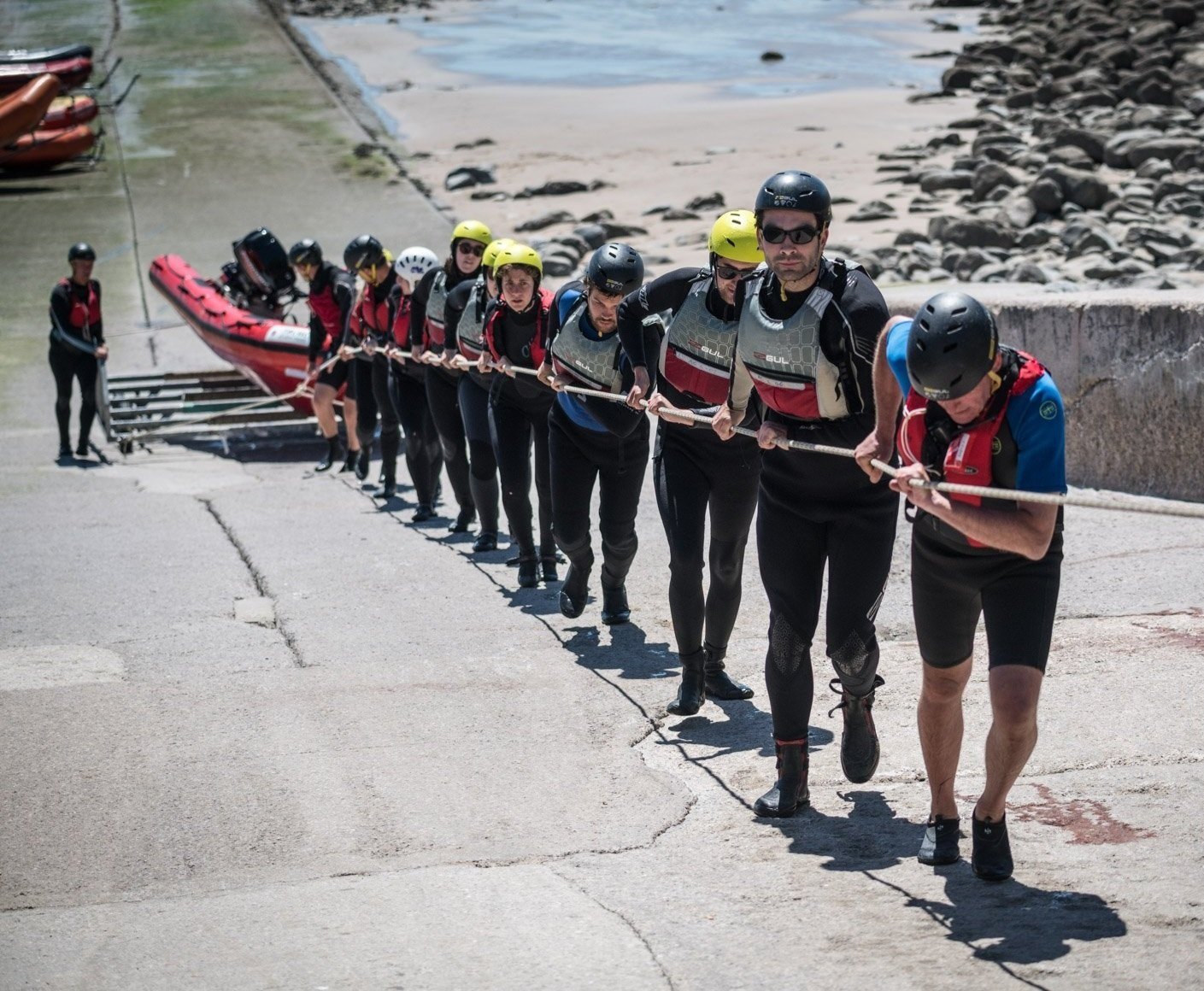Overview of AP Training
Whether preparing SAR workers to assist in humanitarian crises worldwide, promoting sea safety awareness in children, facilitating safe powerboat usage, or training anyone to be able to treat casualties, all of Atlantic Pacific’s courses are designed with preventative lifesaving as the pedagogical cornerstone.

Our international crew of instructors come from diverse backgrounds in medicine, emergency response and SAR work.
They have designed all of our training programming with a rigorous combination of real-world experience and programming infrastructure from recognised institutions like the RNLI, IMRF, and the HSE.
If you have questions about any of our courses or trainings please feel free to email the courses team.
A note on costs
We’re very aware of how challenging it is to do humanitarian sea-based SAR. Training those who do this critical work is at the heart of our values and mission. We offer case by case scholarships to humanitarians for all our courses, and our yearly intensive Summer School, intended only for humanitarian volunteers, is greatly subsidised.
If cost is prohibitive to you, please get in touch and we will always do our best to help.
If we could, we would offer all of our programming for free. As it stands, all of the profits we make get cycled back into making this training accessible to those who will take their skills into the world to save lives from drowning.
A quick look at our courses
Originally developed for casualty care training in maritime search and rescue, this comprehensive 3-day course can be used for lifesaving everywhere, whether for work, volunteering, or in day-to-day life. It qualifies for HSE First Aid at Work certification, which is valid for 3 years.
The course uses a unique aide-memoire check card system, which massively reduces stress during high-pressure situations and leaves participants equipped to treat more illnesses and injuries than most first aid courses.
It is accessible for beginners but remains relevant for trained first-aiders or medical professionals who wish to learn a system for casualty care that is thorough and methodical.
Casualty Care Course
Intended for participants who have a baseline of boating knowledge, this course is a significant first step into search and rescue. One of few civilian open-access courses available, it teaches up-to-date and effective maritime SAR techniques that are actively used in real-life scenarios.
Taught by qualified powerboat instructors who all have considerable experience in SAR fields; either by working in their national or local water rescue services or by working in the humanitarian crisis in the Mediterranean.
The course is based on the IMRF Rescue Boat Operative guidelines, with components further developed by our crew’s diverse and extensive experience in the SAR world. It has been tested intensively in adverse conditions.
SAR Fundamentals Course
As a certified RYA Training Centre, we offer this entry-level course which provides the skills and background knowledge needed to drive a powerboat. It accredits anyone interested in recreational boating or people who want to get involved in SAR but who don’t have any sea-going experience.
The course focuses on low-speed close quarters handling, man overboard recovery, an introduction to driving at planing speed, and collision regulation. Anyone who successfully completes the course will be able to safely drive and manoeuvre a powerboat of up to 10 metres in daylight conditions.
RYA Powerboat Level 2 Course
Created for ages 16 to 20, we offer two versions of this 5-day course, one which is residential and located at UWC Atlantic in Wales, and the other which involves only day programming and is based out of our training centre at the Royal Docks in London.
Designed to introduce young people who are about to embark on further education to the fields of medicine and emergency response, our healthcare experts share the diverse paths they have followed in careers as doctors, medics, emergency responders and humanitarian rescuers. Students hear what it’s like to work in such high pressure but rewarding environments and discuss which training or university programs could be most relevant to their interests.
In addition to lectures and workshops from medical experts, students in both courses do our intensive Casualty Care qualification, providing them an HSE recognised First Aid at Work certification upon completion.






